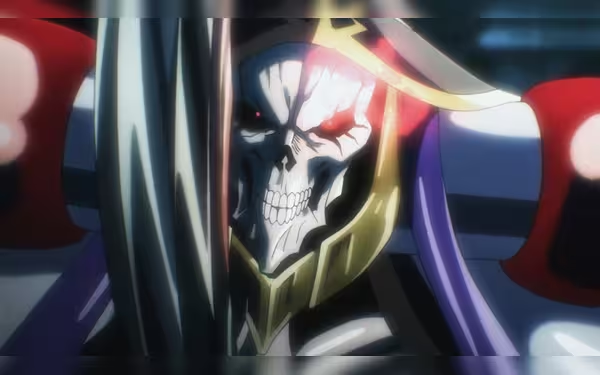Saturday, November 16, 2024 10:52 PM
Overlord: The Sacred Kingdom Film Review
- Disappointing adaptation of beloved anime series.
- Fails to capture essence within limited runtime.
- Visuals suffer from awkward 3D animation.
 Image Credits: ign_pk
Image Credits: ign_pkOverlord: The Sacred Kingdom disappoints fans with a rushed narrative and awkward animation, failing to capture the essence of the original series.
In the realm of anime adaptations, the transition from screen to film often raises eyebrows, especially when it comes to beloved series like "Overlord." The latest installment, "Overlord: The Sacred Kingdom," attempts to bring a new chapter of the story to life. However, it has sparked disappointment among fans and critics alike, as it struggles to capture the essence of the original series within its limited runtime.
"Overlord: The Sacred Kingdom" focuses on the events of the Holy Kingdom Arc, introducing a new character, Neia Baraja. Unfortunately, the film fails to deliver the grand moments that one would expect from a theatrical release. Instead, it presents a lengthy narrative filled with political intrigue and scheming that may have been better suited for a full season of the series or a few special episodes. For those unfamiliar with the lore of "Overlord," the plot can be confusing, as it revolves around the Sacred Kingdom and its quest for assistance from Ainz Ooal Gown’s Sorcerer Kingdom to defeat the demon Jaldabaoth, who is secretly aligned with Ainz.
Despite being familiar with the original series, viewers may find little enjoyment in this adaptation. The film's pacing feels rushed, with significant events occurring without adequate buildup. A climactic battle is hinted at early on, but the audience is quickly whisked away to the aftermath, leaving little room for meaningful action. The film primarily serves as an introduction to new characters, particularly Neia, who gradually develops a fondness for Ainz, mirroring the affection his followers have shown him throughout the series.
However, the film's narrative is undermined by Ainz's manipulative relationship with Jaldabaoth, which diminishes the stakes for Neia and the Holy Kingdom. As Ainz's influence grows, the tension dissipates, and the characters' fates seem predetermined. This predictability strips away much of the drama and excitement that could have been present in the story.
Visually, "The Sacred Kingdom" retains the signature gruesome horror of the "Overlord" series, but it also suffers from awkward 3D animation during larger battles. While there are moments of disturbing imagery, they often feel like mere shock tactics rather than meaningful contributions to the story. The animation occasionally hints at potential, particularly during a duel between Ainz and a formidable opponent, but these moments are fleeting and often cut away before reaching their climax.
"Overlord: The Sacred Kingdom" presents a missed opportunity to create a cinematic experience that resonates with fans of the series. While it introduces new characters and expands on the lore, the film ultimately falls short of delivering a compelling narrative. For those who cherish the original series, this adaptation may leave them longing for the depth and excitement that made "Overlord" a standout in the anime world. As the landscape of anime adaptations continues to evolve, one can only hope that future projects will learn from the shortcomings of this film and strive to honor the source material more faithfully.













